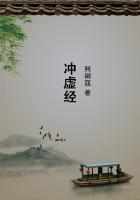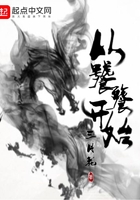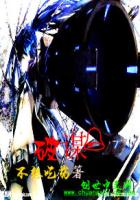IT was longer even than the Senora had thought it would be, before Father Salvierderra arrived. The old man had grown feeble during the year that she had not seen him, and it was a very short day's journey that he could make now without too great fatigue. It was not only his body that had failed. He had lost heart; and the miles which would have been nothing to him, had he walked in the companionship of hopeful and happy thoughts, stretched out wearily as he brooded over sad memories and still sadder anticipations,-- the downfall of the Missions, the loss of their vast estates, and the growing power of the ungodly in the land. The final decision of the United States Government in regard to the Mission-lands had been a terrible blow to him. He had devoutly believed that ultimate restoration of these great estates to the Church was inevitable. In the long vigils which he always kept when at home at the Franciscan Monastery in Santa Barbara, kneeling on the stone pavement in the church, and praying ceaselessly from midnight till dawn, he had often had visions vouchsafed him of a new dispensation, in which the Mission establishments should be reinstated in all their old splendor and prosperity, and their Indian converts again numbered by tens of thousands.
Long after every one knew that this was impossible, he would narrate these visions with the faith of an old Bible seer, and declare that they must come true, and that it was a sin to despond.
But as year after year he journeyed up and down the country, seeing, at Mission after Mission, the buildings crumbling into ruin, the lands all taken, sold, resold, and settled by greedy speculators; the Indian converts disappearing, driven back to their original wildernesses, the last traces of the noble work of his order being rapidly swept away, his courage faltered, his faith died out.
Changes in the manners and customs of his order itself, also, were giving him deep pain. He was a Franciscan of the same type as Francis of Assisi. To wear a shoe in place of a sandal, to take money in a purse for a journey, above all to lay aside the gray gown and cowl for any sort of secular garment, seemed to him wicked. To own comfortable clothes while there were others suffering for want of them -- and there were always such -- seemed to him a sin for which one might not undeservedly be smitten with sudden and terrible punishment. In vain the Brothers again and again supplied him with a warm cloak; he gave it away to the first beggar he met: and as for food, the refectory would have been left bare, and the whole brotherhood starving, if the supplies had not been carefully hidden and locked, so that Father Salvierderra could not give them all away. He was fast becoming that most tragic yet often sublime sight, a man who has survived, not only his own time, but the ideas and ideals of it. Earth holds no sharper loneliness: the bitterness of exile, the anguish of friendlessness at their utmost, are in it; and yet it is so much greater than they, that even they seem small part of it.
It was with thoughts such as these that Father Salvierderra drew near the home of the Senora Moreno late in the afternoon of one of those midsummer days of which Southern California has so many in spring. The almonds had bloomed and the blossoms fallen; the apricots also, and the peaches and pears; on all the orchards of these fruits had come a filmy tint of green, so light it was hardly more than a shadow on the gray. The willows were vivid light green, and the orange groves dark and glossy like laurel. The billowy hills on either side the valley were covered with verdure and bloom,-- myriads of low blossoming plants, so close to the earth that their tints lapped and overlapped on each other, and on the green of the grass, as feathers in fine plumage overlap each other and blend into a changeful color.
The countless curves, hollows, and crests of the coast-hills in Southern California heighten these chameleon effects of the spring verdure; they are like nothing in nature except the glitter of a brilliant lizard in the sun or the iridescent sheen of a peacock's neck.
Father Salvierderra paused many times to gaze at the beautiful picture. Flowers were always dear to the Franciscans. Saint Francis himself permitted all decorations which could be made of flowers.
He classed them with his brothers and sisters, the sun, moon, and stars,-- all members of the sacred choir praising God.
It was melancholy to see how, after each one of these pauses, each fresh drinking in of the beauty of the landscape and the balmy air, the old man resumed his slow pace, with a long sigh and his eyes cast down. The fairer this beautiful land, the sadder to know it lost to the Church, -- alien hands reaping its fulness, establishing new customs, new laws. All the way down the coast from Santa Barbara he had seen, at every stopping-place, new tokens of the settling up of the country,-- farms opening, towns growing; the Americans pouring in, at all points, to reap the advantages of their new possessions. It was this which had made his journey heavy-hearted, and made him feel, in approaching the Senora Moreno's, as if he were coming to one of the last sure strongholds of the Catholic faith left in the country.
When he was within two miles of the house, he struck off from the highway into a narrow path that he recollected led by a short-cut through the hills, and saved nearly a third of the distance. It was more than a year since he had trod this path, and as he found it growing fainter and fainter, and more and more overgrown with the wild mustard, he said to himself, "I think no one can have passed through here this year."















